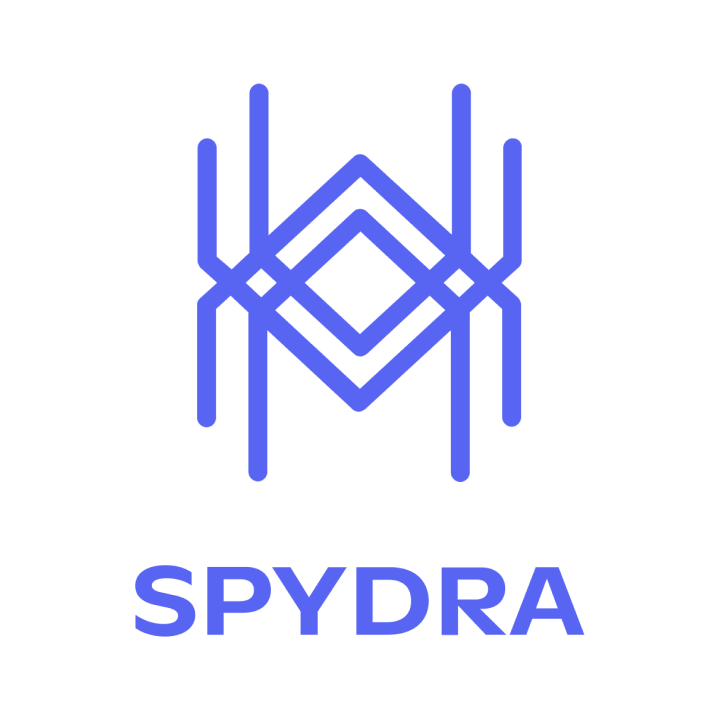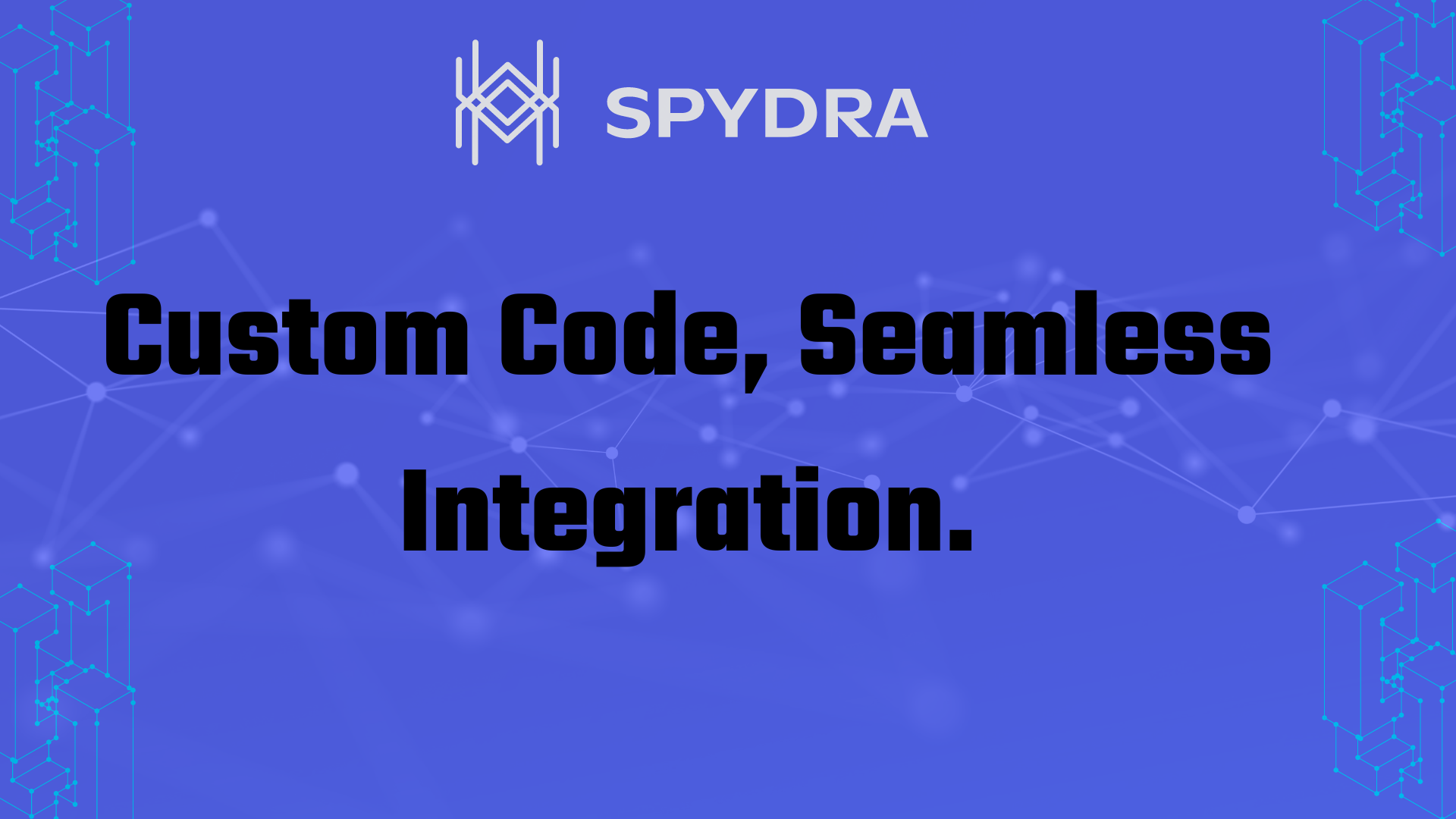Unlocking the Power of Custom ChainCode on Hyperledger Fabric
 Pravin
Pravin
Hyperledger Fabric has emerged as a leading framework for building enterprise-level applications. One of its standout features is the ability to create Custom ChainCode, which allows developers to implement bespoke business logic that aligns with their specific operational needs. This article delves into the significance of Custom ChainCode, its development process, and how platforms like Spydra are revolutionizing how developers approach blockchain solutions.
What is Custom ChainCode?
ChainCodein Hyperledger Fabric refers to smart contracts that govern the rules and logic for transactions on the blockchain. Unlike traditional smart contracts that may be limited in functionality, Custom ChainCode empowers developers to write tailored contracts in programming languages such as Go, Java, or JavaScript. This flexibility enables organizations to create applications that meet their unique requirements while leveraging the robust capabilities of Hyperledger Fabric.
The Importance of Custom ChainCode
Tailored Solutions: Businesses often face challenges that off-the-shelf solutions cannot adequately address. Custom ChainCode allows organizations to design specific workflows and transaction rules that fit their operations perfectly.
Increased Security: By developing tailored smart contracts, companies can enforce security measures that align with their internal policies and compliance requirements. This customization helps mitigate risks associated with generic solutions.
Scalability: As organizations grow, their operational needs evolve. Custom ChainCode can be modified or expanded without disrupting existing processes, ensuring scalability in a dynamic business environment.
Seamless Integration: Custom solutions can be designed to integrate smoothly with existing systems and processes, facilitating a more efficient transition to blockchain technology.
The Development Process of Custom ChainCode
Creating Custom ChainCode involves several critical steps:
1. Define Requirements
The first step in developing Custom ChainCode is to outline the requirements and objectives of the project clearly. This involves identifying key functionalities, transaction flows, and any specific business rules that need to be implemented.
2. Select a Programming Language
Hyperledger Fabric supports multiple programming languages for writing ChainCode, including Go, Java, and JavaScript. Choosing a language that aligns with your team's expertise is essential for efficient development.
3. Set Up a Development Environment
A conducive development environment is crucial for building and testing your ChainCode effectively. Tools such as Docker and Hyperledger Composer can be utilized to create an isolated environment where developers can focus on coding without interference from external factors.
4. Write and Test Code
Once the development environment is set up, developers can begin writing their Custom ChainCode. Continuous testing during this phase is vital to ensure that the code functions as intended and meets the outlined requirements. Testing should cover various scenarios to identify potential issues before deployment.
5. Deploy on the Blockchain
After thorough testing, the next step is deploying the Custom ChainCode onto the Hyperledger Fabric network. This process involves configuring the network settings and ensuring that all nodes are synchronized with the new code.
6. Monitor and Maintain
Post-deployment monitoring is essential to ensure that the Custom ChainCode operates smoothly within the blockchain environment. Regular maintenance may be required to address any bugs or performance issues that arise over time.
How Spydra Enhances Custom ChainCode Development
Spydra stands out as a powerful platform designed to simplify the development and deployment of Custom ChainCode on Hyperledger Fabric. Here are some key features that make Spydra an invaluable resource for developers:
User-Friendly Interface: Spydra offers an intuitive interface that streamlines the development process, allowing developers to focus on writing code rather than navigating complex tools.
Comprehensive Resources: The platform provides extensive documentation, tutorials, and guides that help developers understand best practices for creating effective Custom ChainCode.
Community Support: Spydra fosters a vibrant community where developers can connect with peers, share knowledge, and seek assistance when facing challenges during development.
ISO 27001 Compliance: Security is paramount in blockchain development. Spydra adheres to ISO 27001 standards, ensuring that user data remains protected throughout the development lifecycle.
Free Trials and Demos: For those new to blockchain development or considering Spydra's offerings, free trials and demos are available, allowing users to explore features before committing.
Real-World Applications of Custom ChainCode
The versatility of Custom ChainCode makes it applicable across various industries:
Supply Chain Management: Companies can use Custom ChainCode to track products through every stage of production and distribution, ensuring transparency and accountability.
Financial Services: Banks and financial institutions can develop tailored smart contracts for automating transactions, reducing fraud risk, and enhancing compliance with regulations.
Healthcare: In healthcare settings, Custom ChainCode can facilitate the secure sharing of patient data among authorized parties while maintaining privacy standards.
Voting Systems: Organizations can implement transparent voting mechanisms using Custom ChainCode to ensure fair elections while preventing tampering or fraud.
Challenges in Developing Custom ChainCode
While developing Custom ChainCode offers numerous benefits, it also comes with challenges:
Complexity: Writing effective smart contracts requires a deep understanding of both programming languages and blockchain principles.
Testing Difficulties: Ensuring comprehensive testing can be challenging due to the need for simulating various scenarios in a blockchain environment.
Security Risks: Poorly written code can introduce vulnerabilities that may be exploited by malicious actors.
Conclusion
Custom ChainCode represents a powerful tool for organizations seeking to leverage blockchain technology effectively. By enabling tailored solutions that meet specific business needs, it enhances flexibility, security, scalability, and integration capabilities within existing systems. Platforms like Spydra play a crucial role in simplifying this process by providing user-friendly tools, extensive resources, community support, and adherence to security standards. As businesses continue to explore innovative blockchain solutions, embracing Custom ChainCode will be essential for maintaining a competitive edge in an increasingly digital landscape. For those interested in diving deeper into blockchain development or seeking assistance with Custom ChainCode creation, exploring Spydra's offerings could be a pivotal step toward success in this exciting field.
Subscribe to my newsletter
Read articles from Pravin directly inside your inbox. Subscribe to the newsletter, and don't miss out.
Written by

Pravin
Pravin
Integrate Spydra’s easy-to-use APIs to tokenize your assets for more secure, transparent and reliable data exchange in supply chain, financing, cross-industry processes etc.